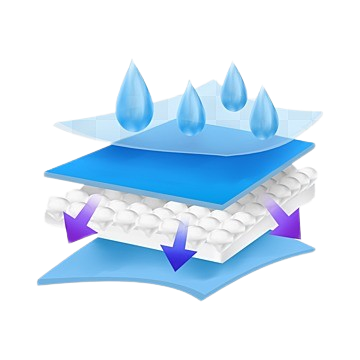Disposable vs. Cloth Diapers: The Great Debate! Which Is Truly Better for Your Baby?
One of the longest-standing conflicts that parents themselves continue to be tangled up in, is whether or not they should go for disposable diapers o cloth ones. Each has its own pros and cons so usually these two options will come down to personal preference, lifestyle as well as how much of an environmentalist you are. Let's have a look at the key factors in this blog.
1. Convenience
Disposable Diapers:
Convenience — This is probably the biggest appeal of disposable diapers. These are one-time-use items meant to be changed out fast and thrown away, which makes them perfect for parents on the go or with a busy lifestyle. They come prewashed, so no washing is necessary —just discard after each use.
Cloth Diapers:
A newborn in cloth diapers takes more work. Today, snap closers or Velcro make modern versions easier to use but all reusable diapers need to be washed and dried regularly. If you live somewhere with laundry close by and time for lots of washing, this may not be a problem. There is even a kind of consolation for some parents, caring for and using reusable diapers.
2. Environmental Impact
Disposable Diapers:
According to the EPA, disposable diapers make up roughly 4% of landfill solid waste. The plastic components of these napkins take 600 years to decompose. Even though there are manufacturers that do have biodegradable nappies, this is still producing waste and taking up resources to make them.
Cloth Diapers:
Cloth ones are always the sustainable more option as compared to the disposable ons. They require water and energy to wash themselves. Of course, hanging clothes out to dry vs using an energy guzzling washing machine helps too. Eventually with cloth diapers the overall amount of waste is reduced.
3. Comfort and Skin Health
Disposable Diapers:
The new generation of disposable diapers is highly absorbent ensuring that liquid waste expands very fast and some provide a greater protection for up to 12 hours depending on the pressure. Still, some chemical fragrances break out certain babies with a diaper rash because the skin is sensitive.
Cloth Diapers:
For example: The materials used to produce cloth diapering are all natural fibers such as cotton, and these can be less abrasive on baby skin. More breathable than disposables; they must be changed more often to prevent moisture buildup. Cloth is a favorite for sensitive skin babies as the parents may not want to risk their child having any possible reactions to chemicals.
4. Leak Protection
Disposable Diapers:
Disposable diapers have much leak protection, and are especially suited for long use such as overnight due to more innovations in designing them. Their design keeps moisture locked in and helps prevent leaks, no matter how long you wear them.
Cloth Diapers:
As far as absorbency goes, cloth diapers have really come a long way in this regard but are we still bringing up the rear when it comes to leak-proof venues? You might have to double up on inserts for nighttime and leaks unless you are changing very frequently.
Here’s the humanized version of your text:
Potty Training Lunges: One report suggests that disposable diapers can prevent babies from feeling wet, as they absorb excess moisture and keep the skin dry for a long time.
Cloth Diapers: Cloth diapers may help some kids learn faster because they feel wetness sooner compared to regular disposable diaper brands.
Summary: Which One Should You Use? Whether to use cloth or disposable diapers is a personal choice, and there’s no right or wrong answer. Ensuring the health and safety of your baby in each diaper is an additional reason some may opt for disposable diapers. However, if you’re interested in a budget-friendly, eco-conscious option and don’t mind the extra laundry, cloth diapers might be just the thing. Many parents prefer using a combination of both. Having a good stock of both types provides flexibility. Figure out what works best for you and your baby!






Comments
Post a Comment